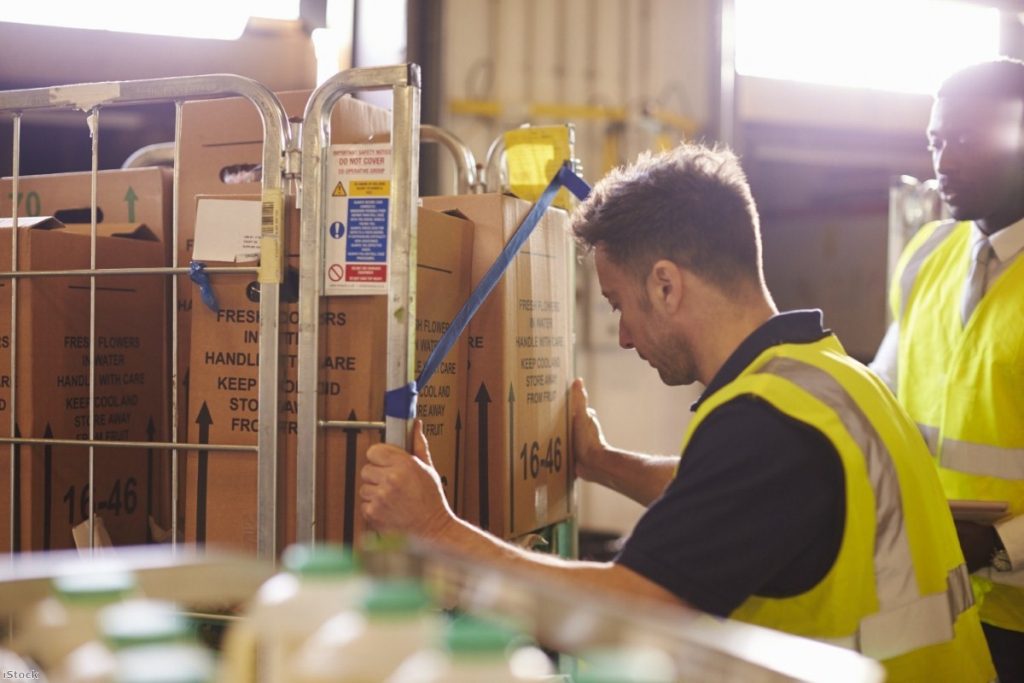By Mike Holden
On Sunday night, the drunk-man's-stagger of Brexit policy lurched back to the hard end. After a weekend of newspaper rumours about threats to Theresa May from a "dream team" of Boris Johnson, Michael Gove and Jacob Rees-Mogg, No.10 announced that the UK was "categorically" leaving the customs union.
The trouble with this policy is that the government also wants frictionless trade with Europe – something which relies on membership of the customs union. This is known in some circles as "Cakeism".
The government's occasional focus on trade flows isn't just about avoiding general economic damage. It's also a response to a relatively new type of manufacturing process, which makes stoppages at the border ruinous for many companies. Fittingly enough, the process is called 'just-in-time'. It bestrides modern business in the UK.


Just-in-time production is a system aimed primarily at reducing flow times within a system as well as response times from suppliers and to customers. Its origin and development was in Japan, largely in the 1960s and 1970s. These methodologies rely on a smooth continuous flow of material into and out of the production plant. The factory is considered less a stopping point and more the central part of a pipeline with goods flowing freely in and out.
Just-in-time was becoming big news in the UK back in the 80s. At the time, I was involved in manufacturing and I confess to being sceptical of its success – that may be one reason I'm no longer in the sector. The idea that your business ideally carries no stock whatsoever, either in the form of raw materials/parts or completed goods, seemed to be fraught with potential difficulties.
But the benefits of just-in-time are huge. You don't have to build or manage storage space for supplies or stock. It's immensely efficient. Obviously in practical terms it's impossible to achieve the 100% efficiency needed for zero headroom, but just-in-time philosophy is to have these money-wasters kept to a bare minimum.
The issue of course is that it is extremely susceptible to delays, making an unimpeded flow of goods to and from Europe vital. Any delay to incoming supply chains or the shipping of goods to customers absolutely kills just-in-time. The rate of raw materials arriving, goods being manufactured and completed products being shipped out to market must be in precise synchronisation or the whole thing breaks down. A delay as trivial as a traffic jam can halt a production line worth millions. A spell of bad weather holding up a container ship or a blockage on the Channel Tunnel can do the same.

Imagine the scenario where goods are waiting at port but are held up by protracted customs checks, compliance procedures, rules-of-origin paper work and the rest. Things could be held up for days or weeks.
Large motor manufacturers rely on just-in-time. Toyota pretty much invented it. If they see customs delays on the horizon they'll be forced to move to mainland Europe by a combination of UK hubris and their own established manufacturing methods. It would be a simple financial decision and absolutely the right thing for them to do.
Major UK retailers, including Aldi and Tesco, use just-in-time on the supply side to minimise stock retention, improve working capital and reduce wastage. Aldi literally have palettes of goods rolled off the lorry and onto the shop floor. Any delay means customers will be arriving to find empty shelves, with fresh food rotting in customs warehouses before it gets to the shops. Food costs would rise in response.
For many UK businesses, time is running out for the UK to support just-in-time. The panicked announcement on Sunday takes us in the wrong direction.
Mike Holden is a freelance journalist.
The opinions in politics.co.uk's Comment and Analysis section are those of the author and are no reflection of the views of the website or its owners.









